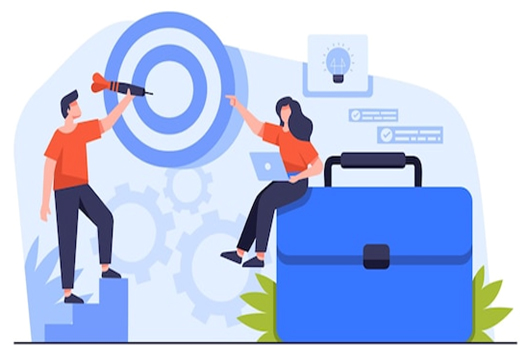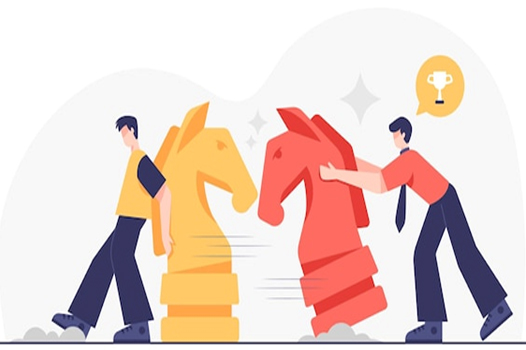The Great Detachment: Coaching for Connection and Engagement in 2025
by Mentoring Matters
4 minutes read
It’s 2025, and workplaces around the world are grappling with a quiet but pervasive challenge. Employees are showing up for work, both physically and virtually, but something is missing. Engagement is dwindling. Purpose feels elusive. Productivity, once a reliable metric, is harder to sustain.
Unlike the Great Resignation, which saw workers leaving their jobs en masse, The Great Detachment is subtler but no less concerning. Employees aren’t leaving—they’re disengaging. The signs are clear: minimal enthusiasm, resistance to change initiatives, and a growing disconnect from organisational goals. In 2024, employee engagement in the U.S. hit an 11-year low, with overall satisfaction plunging to record lows. For organisations striving to innovate and thrive, this detachment is not just a people problem—it’s a business crisis.
The Indian Workforce: The Detachment Within
While these challenges are global, India’s workforce is navigating its own set of unique dynamics in 2025. The hybrid work model, now embraced by over 60% of Indian organisations, has fundamentally reshaped how work is done. Employees enjoy greater flexibility, but this comes at a cost: the erosion of spontaneous connection and camaraderie that once defined in-person collaboration.
At the same time, India is focusing heavily on skill development, with over 50% of secondary and tertiary students expected to have access to vocational training by year-end. Yet, this emphasis on upskilling is juxtaposed against a sobering warning from the Economic Survey 2024-25: toxic work cultures and overwork are threatening to stall India’s economic ambitions. For a nation that prides itself on its youthful, driven workforce, balancing these pressures with employee well-being is more crucial than ever.
This is where coaching becomes indispensable—not as a luxury, but as a necessity for navigating these complexities. Coaching offers a framework to rebuild connection, re-engage employees, and create workplaces where both individuals and organisations thrive.
The Role of Coaching in Combating Detachment

Coaching, at its core, is about facilitating meaningful transformation. It’s not just about helping individuals perform better—it’s about helping them feel better about what they do and why they do it. In the context of The Great Detachment, coaching addresses critical areas that help leaders and teams reconnect and re-engage:
1.Rebuilding Connection
In a world dominated by hybrid and remote work, coaching fosters authentic connections. Leaders learn how to communicate with empathy, build trust, and create a culture where team members feel seen and valued.
2.Fostering Purpose-Driven Work
Detachment often stems from a lack of alignment between personal goals and organisational objectives. Coaching bridges this gap by helping individuals see how their roles contribute to something bigger—turning work into a source of meaning rather than just a task list.
3.Developing Human-Centric Workplaces
Coaching emphasises the importance of well-being and psychological safety in the workplace. By focusing on the human experience, coaching creates environments where employees can thrive, innovate, and collaborate.
4.Upskilling for an AI-Driven Future
As technology continues to redefine the workplace, coaching equips employees with both technical skills and soft skills like adaptability, creativity, and emotional intelligence—ensuring they stay relevant in a rapidly evolving landscape.
Strategies for Effective Coaching

To truly combat detachment, coaching must go beyond surface-level solutions. Here are four strategies that organisations can adopt to accelerate engagement and connection:
1.Tailored Hybrid Approaches : Coaching helps leaders design work arrangements that balance flexibility with team cohesion, ensuring that hybrid models don’t lead to isolation.
2.Purpose Alignment : By tying individual contributions to organisational missions, coaching instils a shared sense of direction and purpose among employees.
3.Skill Development : Beyond upskilling for technical expertise, coaching focuses on emotional resilience and leadership skills to prepare teams for future challenges.
4.Well-Being Integration : Coaching integrates mental health and wellness into the workplace culture, ensuring that employees feel supported both personally and professionally.
Coaching: The Bridge to Engagement
The Great Detachment doesn’t have to define the future of work. With the right coaching strategies, organisations can turn this challenge into an opportunity—one where connection and engagement become the foundation of a thriving workplace. Whether it’s addressing the nuances of India’s hybrid workforce or preparing global teams for an AI-driven future, coaching offers a path forward.
Because in the end, connection isn’t just a corporate goal—it’s a human need. And when people feel connected, they don’t just work better—they live better.
- Previous article:
- Next article: